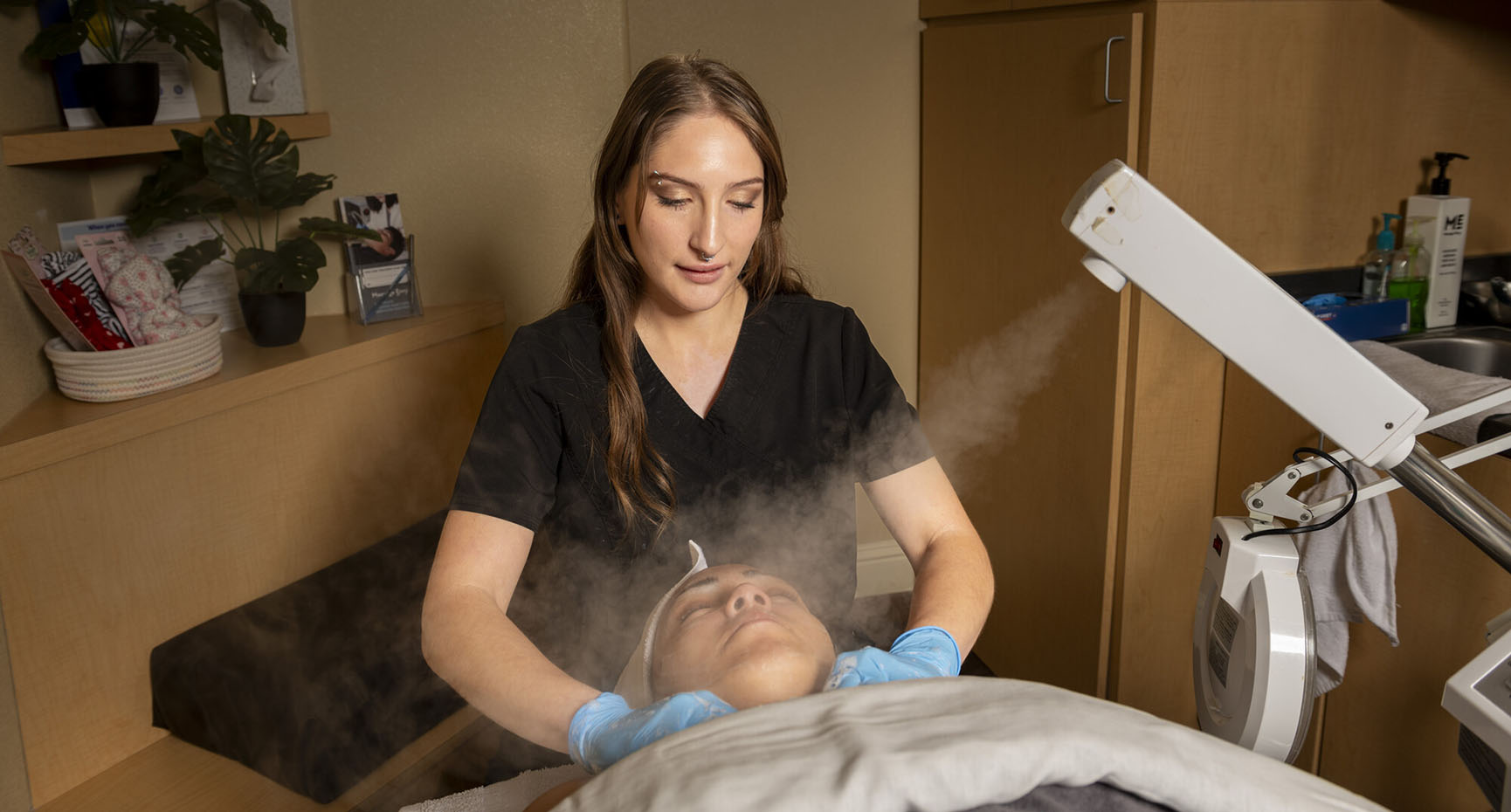New Programs Offer Students Educational Opportunities
March 13, 2025
Kirk Dickey

While Collin College waits for approval of the Bachelor of Applied Technology in Software Development, current students are benefiting from new and high-demand associate degree, certificate, and continuing education programs that can lead to rewarding careers.
In Fall 2024, the college added associate degrees in three subjects that had previously only been offered as Field of Study (FOS) certificates. These new Associate of Arts programs include the Political Science FOS, Psychology FOS, and Sociology FOS. Each of these programs benefits from strong faculty support within existing frameworks throughout the college, and they are designed to transfer to any public Texas university with the assurance that the students have completed uniform and necessary lower-level coursework.
In addition to the Bachelor of Applied Science in Clinical Operations Management program discussed in the bachelor’s degree article, in Fall 2023, the college also began offering courses in the Associate of Applied Science degree program in Physical Therapist Assistant. Built on the success of the college’s established Rehabilitation Aide program, the Physical Therapist Assistant program provides students with the foundational knowledge to work with patients under the supervision of a physical therapist.
Students learn rehabilitation techniques, functional anatomy, patient care skills, and therapeutic exercise among other skills that help patients recover from injury or illness.
The college introduced two new certificate programs and three new Occupational Skill Awards in Continuing Education in the 2023 and 2024 academic years, providing students with certification and licensure preparation for sought-after careers.
The Esthetician Level 1 Certificate program trains students to perform treatments and procedures to improve the overall health and condition of the skin. The students train in classrooms and labs for 750 hours in preparation for a state licensing exam. As an added benefit to the community, the program offers supervised skin care treatments at a low cost to the public as part of the students’ training.
Related to the Esthetician program is the college’s Occupational Skills Award (OSA) in Lash Extension. OSAs provide job-specific training desired by employers which can be completed in a shorter time frame.
The college’s new Medical Massage Therapy Level 1 Certificate program prepares students to use specialized massage techniques tailored to medical conditions with a strong foundation in assessment, treatment planning, and rehabilitation. Students who complete the program may work in hospitals, clinics, rehabilitation centers, chiropractic offices, sports facilities, and/or other places where this
specialized massage is needed.
Students interested in earning a Commercial Driver’s License can pursue the OSA in Professional Truck Driving through Collin College. Offered in morning and evening/weekend formats, the program provides 200 hours of training spread over classroom and hands-on instruction.
Beyond new programs, Collin continues to provide programs considered “high demand” by the state of Texas, such as Engineering, Automotive Technology, Child Development, Fire Science, an Associate Degree in Nursing, and many more. The categorization of these programs as high-demand fields is made by the Texas Higher Education Coordinating Board (THECB) working with the Texas Workforce Commission to forecast the future workforce needs statewide and in each of the 12 regional areas within it.
Per the THECB, high-demand programs like these represent “the variety of occupations in our complex economy and the specific needs of each unique region.”
House Bill 8, a legislative effort to shift community college funding toward student completions of awards, rewards colleges’ work in providing these programs for students who are eager to enter these growing industries. Collin College monitors these needs and responds when a workforce need is apparent in its district service area.
Back to Newsroom
